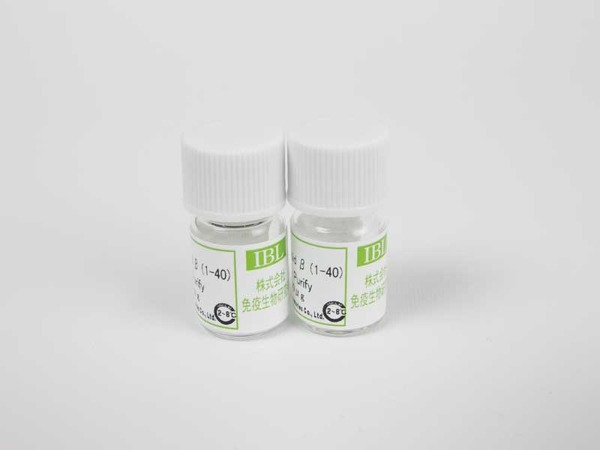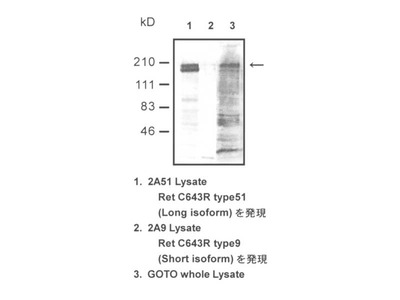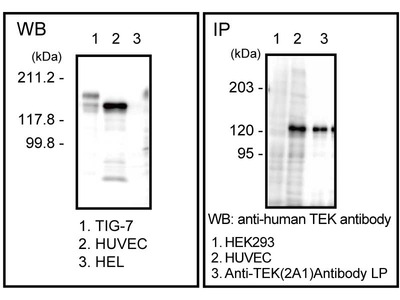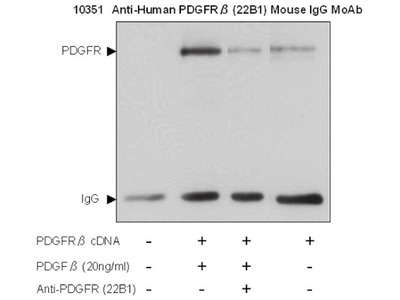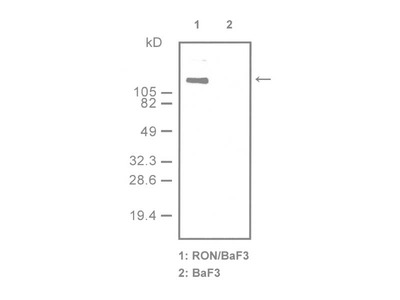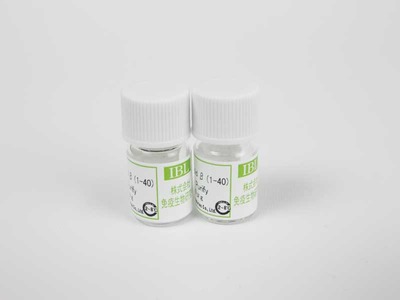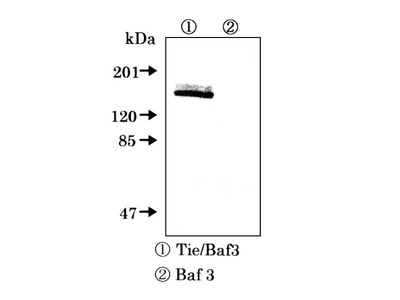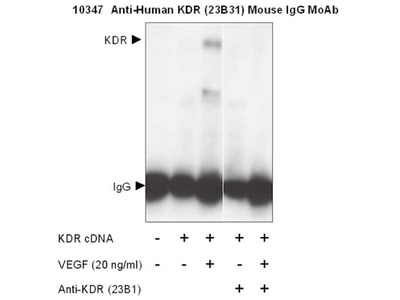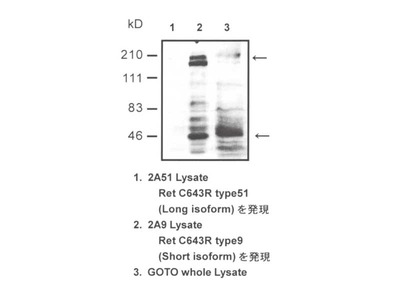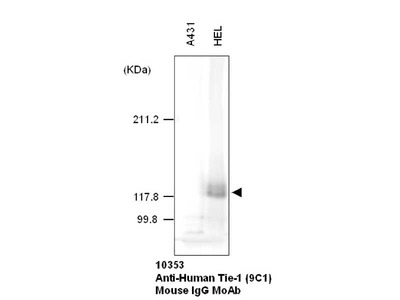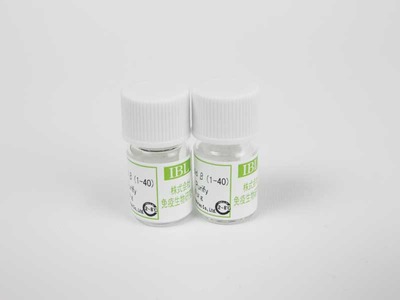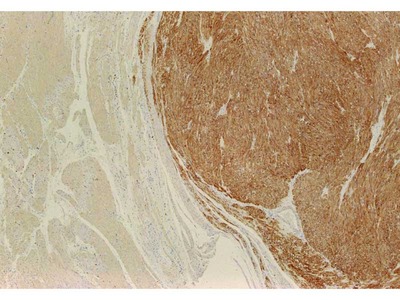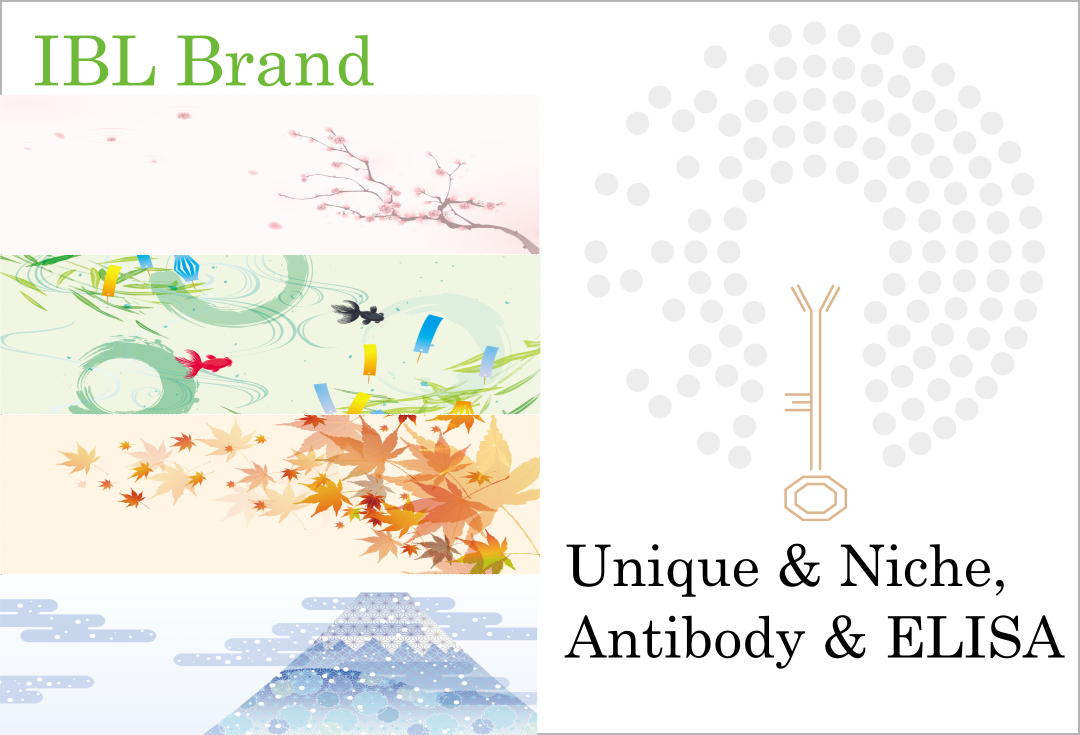- HOME >
- For Researchers >
- Product Search >
- Search Result >
- #18105 Anti-Human c-Kit (K963) Rabbit IgG Affinity Purify-FITC
Product Search
#18105 Anti-Human c-Kit (K963) Rabbit IgG Affinity Purify-FITC
- Intended Use:
- Research reagents
- Application:
- IHC
- Package Size1:
- 100 μg
- Note on Application Abbreviations
- IHC:Immunohistochemistry
※ The product indicated as "Research reagents" in the column Intended Use cannot be used
for diagnostic nor any medical purpose.
※ The datasheet listed on this page is sample only. Please refer to the datasheet
enclosed in the product purchased before use.
Product Overview
Product Overview
| Product Code | 18105 |
|---|---|
| Product Name | Anti-Human c-Kit (K963) Rabbit IgG Affinity Purify-FITC |
| Intended Use | Research reagents |
| Application | IHC |
| Species | Human |
| Immunizing antigen | Synthetic peptide for C-terminal of human c-Kit |
| Purification Method | Affinity Purified with synthetic peptide, then FITC was conjugated. |
| Specificity | Human c-Kit (M.W.145kDa) specific |
| Package Form | Lyophilized product from 1% BSA in PBS containing 0.05%NaN3 |
| Storage Condition | 2 - 8℃ |
| Poisonous and Deleterious Substances | Applicable |
| Cartagena | Not Applicable |
| Package Size 1 | 100 μg |
| Remarks1 | The commercial use of products without our permission is prohibited. Please make sure to contact us and obtain permission. |
Product Description
Product Description
The proto-oncogene c-kit encodes a transmembrane tyrosine kinase receptor, and its ligand for c-Kit receptor has been identified as the stem cell factor (SCF). Recent experimental studies have shown that c-Kit plays a key role in the development of a component of the pacemaker system that is required for generation of autonomic gut motility. These studies further suggest that interaction of the c-Kit and SCF is essential for development of enteric nervous system. Recently, it is reported that the c-Kit may be an important marker for gastrointestinal stromal tumors (GISTs) which may originate from the interstitial cells of Cajal (ICCs).

